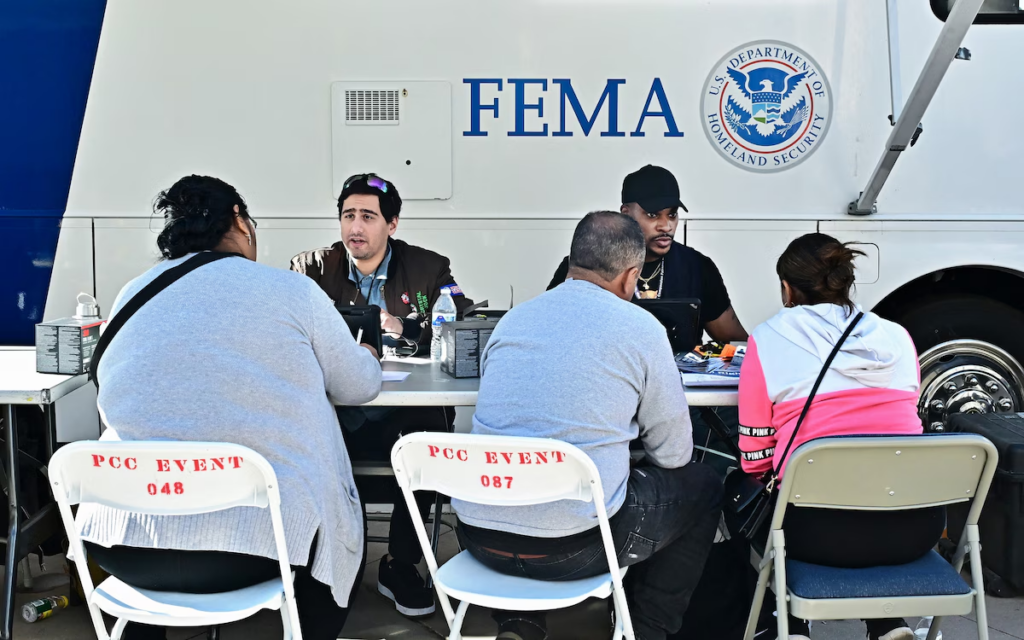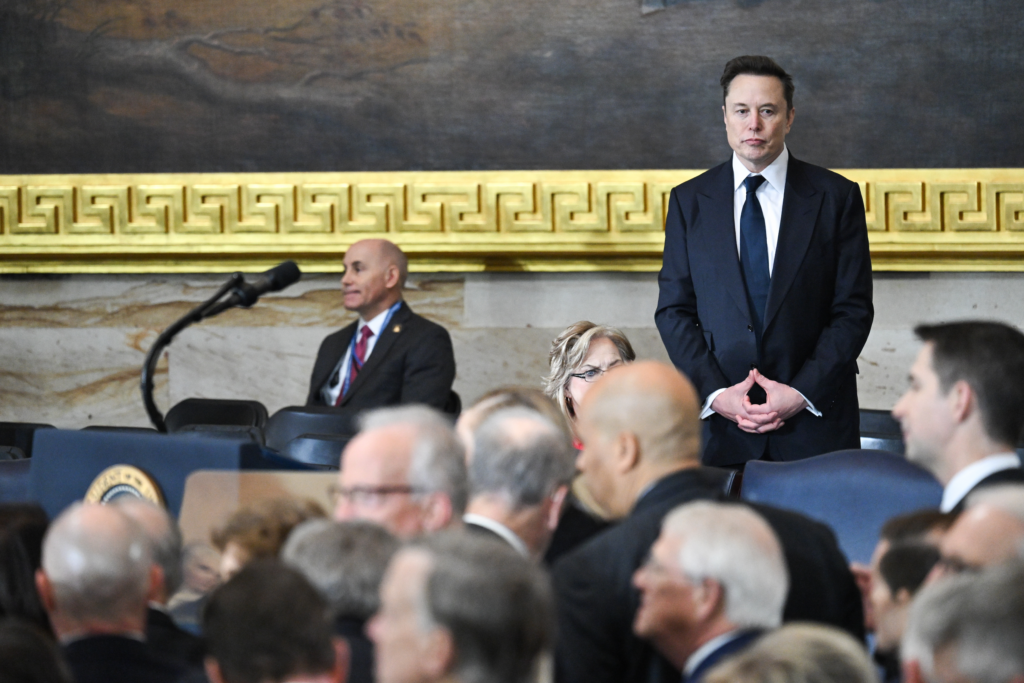Elon Musk’s Role in Streamlining Government Operations
Recent reports have revealed that the Department of Government Efficiency (DOGE) has gained access to the Federal Emergency Management Agency (FEMA). This development has sparked a range of reactions, from excitement about more efficient government operations to concerns about the privatization of disaster management.

Elon Musk’s Involvement in DOGE
The link between DOGE and Elon Musk has been widely discussed. The Washington Post have shed light on Musk’s role in advocating for a more efficient government. DOGE is part of a broader initiative aimed at streamlining federal operations, a cause that Musk has supported for years. His push for efficiency within the government is tied to his broader efforts to innovate and improve systems across various sectors.
Musk’s influence within the Trump administration has made him a controversial figure in this context. His involvement is seen as both a benefit and a liability, depending on the perspective. On one hand, his backing could speed up changes within FEMA, leading to more streamlined operations. On the other hand, it could introduce biases that disrupt the agency’s mission.
Concerns About DOGE’s Access to FEMA
While the goal of efficiency may sound appealing, there are growing concerns regarding the implications of DOGE’s access to FEMA. Critics worry that this move may compromise the integrity of disaster relief operations. FEMA has long been tasked with coordinating national emergency responses, providing critical aid to communities in times of disaster.
Reports suggest that DOGE’s access could lead to closer scrutiny of how FEMA handles data related to disaster relief, which has raised questions about the potential for data misuse. The sensitive nature of this data—concerning survivors of disasters—demands strict protection, and there are concerns that the introduction of external oversight could compromise privacy.
Support and Criticism: Public Reactions to the Change
Supporters of the DOGE-FEMA collaboration argue that this access could lead to more efficient use of resources. They suggest that by cutting down waste and improving response times, the government could better address national emergencies. FEMA, under DOGE’s watch, could become a more agile and responsive organization.
However, critics of this move fear that it could lead to the privatization of essential government functions. There is worry that external oversight—especially one connected to a private sector figure like Musk—could politicize emergency services. The concern is that the effectiveness of FEMA could be undermined if its operations are influenced by political motives or profit-driven interests.
The Potential Impact on FEMA’s Operations
FEMA officials have expressed uncertainty about how DOGE’s involvement will impact their day-to-day operations. The agency’s primary responsibility is to assist people before, during, and after disasters. FEMA’s role requires unbiased and swift action, a task complicated by political involvement or external oversight.
It remains to be seen how much influence DOGE will have on FEMA’s decision-making processes. The agency’s disaster relief operations are highly sensitive and require both autonomy and a clear sense of purpose. Introducing external oversight could either improve these processes or introduce disruptions that hinder FEMA’s ability to act effectively.

Data Privacy and Security: A Growing Concern
One of the most pressing concerns about DOGE’s involvement with FEMA is the potential for data misuse. FEMA holds vast amounts of sensitive data, including personal information about disaster survivors. The security of this information is paramount to ensuring public trust and protecting individuals’ rights.
With DOGE’s access to this data, there are increased fears that privacy could be compromised. Critics worry that data could be misused, whether for political gain or in pursuit of private sector interests. Securing disaster-related data should remain a priority, but there is growing concern that this new arrangement could introduce vulnerabilities.
Will FEMA’s Mission Be Affected?
FEMA’s mission has always been to provide relief and support to those affected by disasters. The agency operates with a focus on impartiality, ensuring that aid is distributed fairly and efficiently. However, if political or corporate interests start to influence FEMA’s operations, this mission could be at risk.
Supporters of the DOGE initiative argue that greater efficiency could enhance FEMA’s effectiveness in future disasters. However, the fear is that the shift could lead to unintended consequences, such as slower response times, reduced transparency, and biased decision-making processes. The true impact of this change may take years to fully unfold.
Public Trust and the Future of Disaster Management
At the heart of the debate is the issue of public trust. FEMA has long been viewed as a reliable, independent agency that acts quickly and fairly in times of crisis. However, with the introduction of DOGE into the picture, this trust could be tested. If the public perceives that FEMA’s actions are influenced by private or political interests, it could erode confidence in the agency’s ability to respond effectively to disasters.
This shift in government oversight is a crucial moment for FEMA. The agency’s ability to navigate this new relationship with DOGE could determine its future success or failure. Moving forward, transparency, accountability, and a clear focus on disaster relief will be essential in maintaining public trust.

A Changing Landscape for FEMA
The increased access of DOGE to FEMA signals a shift in the way federal agencies are managed. While the potential for greater efficiency exists, so do significant risks. The balance between improving operations and safeguarding the core values of impartiality, data security, and public trust will be key to determining how this development impacts emergency management in the United States.
As this situation evolves, it will be critical for stakeholders, including the public and FEMA itself, to closely monitor the impact of these changes. Only time will reveal whether this new oversight leads to improvements or creates more challenges in disaster management.
Our Visitor






 Users Today : 33
Users Today : 33


